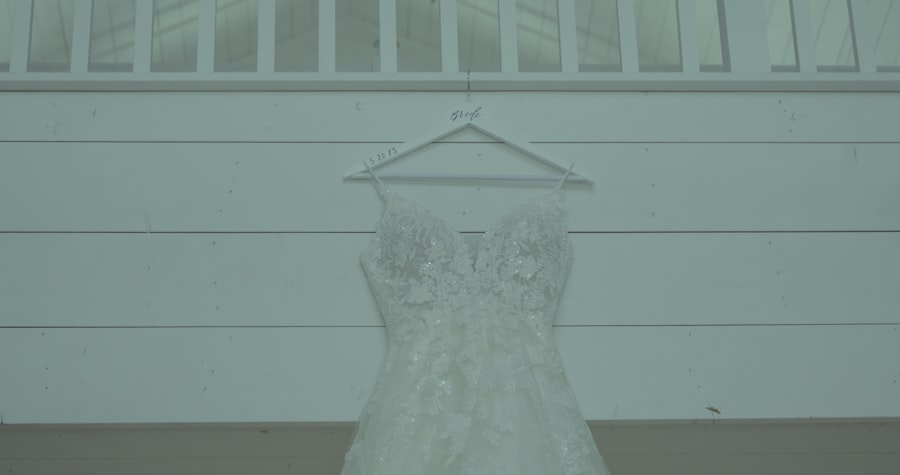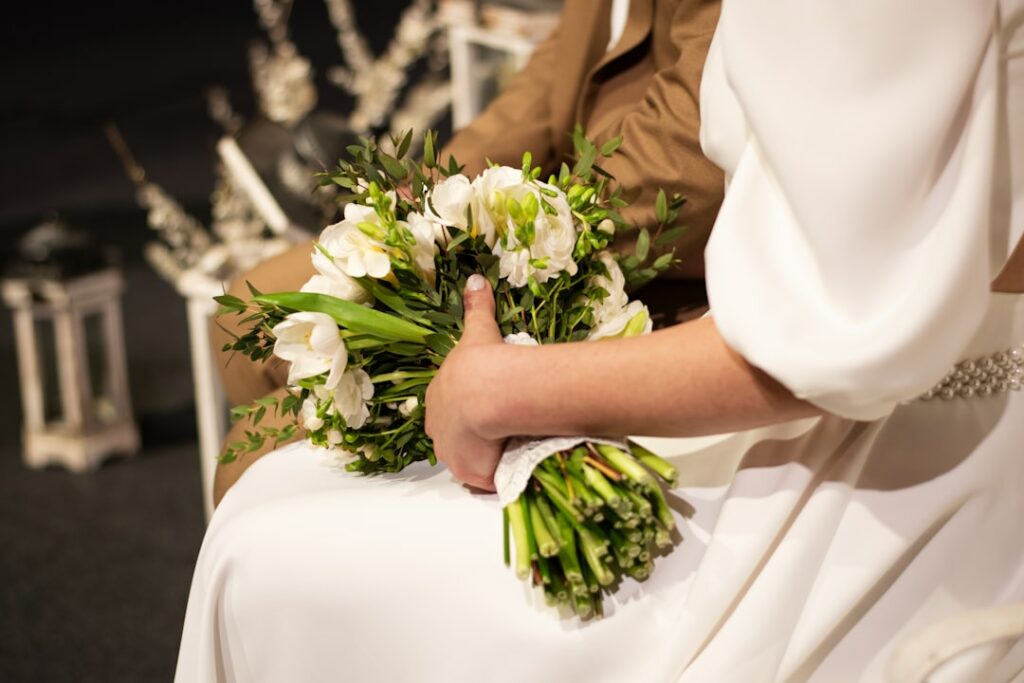As you navigate through life’s significant moments, the role of a local celebrant becomes increasingly vital. A celebrant is not merely a facilitator of ceremonies; they are the architects of meaningful experiences that honour your unique journey. Whether it’s a wedding, a naming ceremony, or a memorial service, a celebrant crafts an event that resonates with your values and beliefs.
They possess the skills to weave together words and emotions, creating a tapestry of memories that you and your loved ones will cherish forever. In essence, a local celebrant serves as a bridge between tradition and personal expression. They understand the importance of rituals while also recognising the need for individuality in each ceremony.
This duality allows them to create events that are both respectful of cultural practices and tailored to your specific desires. By choosing a local celebrant, you are not just selecting someone to officiate; you are inviting a partner into your life’s most poignant moments, ensuring that every detail reflects your story.
Summary
- A local celebrant plays a crucial role in creating and conducting personalised ceremonies for various life events.
- Personalising ceremonies allows individuals to express their unique beliefs, values, and traditions, making the event more meaningful and memorable.
- Building a strong connection with clients is essential for a celebrant to understand their needs and create a ceremony that truly reflects their wishes.
- Creating meaningful rituals within ceremonies can add depth and significance to the event, making it a truly special and memorable occasion.
- The importance of ceremony in modern society remains significant, as it provides a sense of community, tradition, and a way to mark life’s important milestones.
- Celebrating life’s milestones through ceremonies allows individuals to honour and commemorate significant events in a meaningful and personal way.
- Working with different cultural and religious traditions requires sensitivity, respect, and a willingness to learn and adapt to create inclusive and meaningful ceremonies.
- The future of celebrancy lies in its ability to adapt to changing societal needs and values, while continuing to provide meaningful and personalised ceremonies for all.
Personalising Ceremonies
Personalisation is at the heart of what a celebrant does. When you engage with a celebrant, you are encouraged to share your thoughts, feelings, and aspirations for the ceremony. This collaborative process allows you to infuse your personality into every aspect of the event.
From the choice of readings to the music selection, every element can be tailored to reflect your unique narrative. This level of customisation transforms a standard ceremony into an extraordinary celebration of who you are. Moreover, personalising ceremonies goes beyond mere aesthetics; it delves into the emotional core of the occasion.
A skilled celebrant will take the time to understand your relationship dynamics, family history, and cultural background. This understanding enables them to craft a ceremony that resonates deeply with you and your guests. By incorporating anecdotes, shared experiences, and even humour, they create an atmosphere that feels intimate and genuine, allowing everyone present to connect with the moment on a profound level.
Building a Connection with Clients

The relationship between a celebrant and their clients is built on trust and understanding. As you embark on this journey, it is essential for you to feel comfortable sharing your thoughts and emotions with your celebrant. A good celebrant will take the time to listen actively, ensuring that they grasp not only the logistics of the ceremony but also the underlying sentiments that make it special.
This connection is crucial; it allows them to represent your voice authentically during the ceremony. Building this rapport often involves multiple meetings and conversations, where you can discuss your vision in detail. A celebrant who invests time in getting to know you will be better equipped to capture your essence in their words and actions.
This relationship fosters an environment where you can express your hopes and concerns freely, leading to a more fulfilling and personalised ceremony. Ultimately, this connection transforms the celebrant from a mere officiant into a trusted confidant who genuinely cares about making your day memorable.
Creating Meaningful Rituals
Rituals play an integral role in ceremonies, serving as tangible expressions of love, commitment, and remembrance. A local celebrant understands the significance of these rituals and works with you to create meaningful practices that resonate with your beliefs and values. Whether it’s lighting a unity candle during a wedding or incorporating a sand ceremony to symbolise blending families, these rituals add depth and significance to the occasion.
Moreover, meaningful rituals can also be adapted to reflect contemporary values while honouring traditional practices. For instance, you might choose to include elements from various cultures or create new rituals that speak to your personal experiences. A skilled celebrant will guide you through this process, helping you select or design rituals that enhance the emotional impact of the ceremony.
By doing so, they ensure that every moment is imbued with significance, allowing you and your guests to engage fully with the experience.
The Importance of Ceremony in Modern Society
In today’s fast-paced world, the importance of ceremony cannot be overstated. Ceremonies provide a much-needed pause in our lives, allowing us to reflect on our experiences and celebrate our connections with others. They serve as markers of significant life events, helping us navigate transitions such as marriage, parenthood, or loss.
In an age where digital interactions often overshadow face-to-face connections, ceremonies remind us of the value of community and shared experiences. Furthermore, ceremonies offer an opportunity for healing and closure during difficult times. In moments of grief or loss, coming together to honour a loved one can provide solace and support for those left behind.
A local celebrant plays a crucial role in facilitating these moments of connection and reflection, ensuring that each ceremony is handled with sensitivity and care. By acknowledging the importance of these rituals in modern society, you can appreciate how they contribute to emotional well-being and foster a sense of belonging.
Celebrating Life’s Milestones

Life is filled with milestones that deserve recognition and celebration. From birthdays to anniversaries, graduations to retirement parties, each event marks a significant moment in your journey.
A local celebrant can help you commemorate these occasions in ways that are both meaningful and memorable.
By crafting personalised ceremonies for these milestones, they allow you to honour achievements and transitions while creating lasting memories with family and friends. Celebrating life’s milestones also provides an opportunity for reflection and gratitude. As you gather with loved ones to acknowledge these moments, you can share stories, express appreciation, and reinforce connections within your community.
A celebrant can facilitate this process by incorporating elements such as speeches or shared activities that encourage participation from all attendees. In doing so, they help create an atmosphere of joy and togetherness that enhances the overall experience.
Working with Different Cultural and Religious Traditions
In our increasingly diverse society, the ability to work with various cultural and religious traditions is essential for any local celebrant. You may come from a background rich in customs or beliefs that shape how you wish to celebrate significant life events. A skilled celebrant will respect these traditions while also being open to incorporating modern elements that reflect your personal values.
This adaptability allows for ceremonies that honour heritage while embracing individuality. For instance, if you wish to blend traditional practices from different cultures during your wedding ceremony, a celebrant can help facilitate this fusion seamlessly. They will work closely with you to ensure that all aspects of the ceremony are respectful and meaningful, creating an inclusive environment for all guests regardless of their backgrounds.
The Future of Celebrancy
As society continues to evolve, so too does the role of celebrants in our lives. The future of celebrancy is likely to see an increased emphasis on inclusivity and personalisation as more individuals seek ceremonies that reflect their unique identities and values. You may find that celebrants are increasingly embracing technology as well, offering virtual ceremonies or hybrid events that cater to those unable to attend in person.
Moreover, as awareness grows around mental health and emotional well-being, the role of celebrants may expand beyond traditional ceremonies to include support during challenging times. This could involve offering workshops or resources for individuals navigating grief or significant life changes. As you consider the future of celebrancy, it becomes clear that these professionals will continue to play an essential role in shaping how we celebrate life’s moments—ensuring that each ceremony is not only memorable but also deeply meaningful in an ever-changing world.
If you are considering a truly personalised and meaningful wedding ceremony in Scotland, you might find the insights from a related article quite enlightening. It discusses the rising trend of bespoke ceremonies in the region and how local celebrants are crafting unique experiences that reflect the couple’s values and personalities. For more detailed information, you can read the article com/2024-in-scotland-embracing-meaningful-wedding-ceremonies/’>here.
This piece offers a comprehensive look into how these ceremonies are becoming a popular choice for modern couples wishing to celebrate their special day in a way that truly resonates with them.
FAQs
What is a local celebrant?
A local celebrant is a trained professional who conducts and officiates at various ceremonies and celebrations, such as weddings, funerals, baby namings, and other significant life events. They work closely with individuals and families to create and conduct personalised and meaningful ceremonies.
What services does a local celebrant offer?
A local celebrant offers a range of services including creating and conducting personalised ceremonies for weddings, funerals, baby namings, vow renewals, and other significant life events. They work closely with clients to ensure that the ceremony reflects their beliefs, values, and wishes.
How does a local celebrant differ from a religious officiant?
A local celebrant differs from a religious officiant in that they are not affiliated with any specific religious denomination or faith. They are trained to create and conduct non-religious or interfaith ceremonies that are inclusive and reflective of the beliefs and values of the individuals or families involved.
How can I find a local celebrant for my event?
You can find a local celebrant for your event by searching online directories, asking for recommendations from friends or family, or contacting celebrant associations and organisations. It’s important to meet with potential celebrants to discuss your needs and ensure that they are the right fit for your event.
What qualifications and training do local celebrants have?
Local celebrants typically undergo specific training and certification through celebrant organisations and associations. They are trained in ceremony creation, public speaking, and working with diverse individuals and families. Many celebrants also continue their professional development through ongoing training and education.

